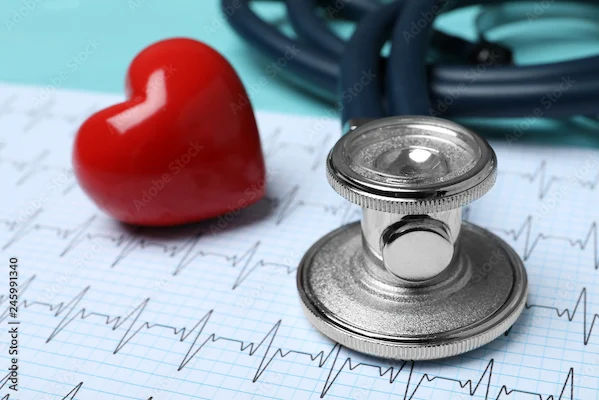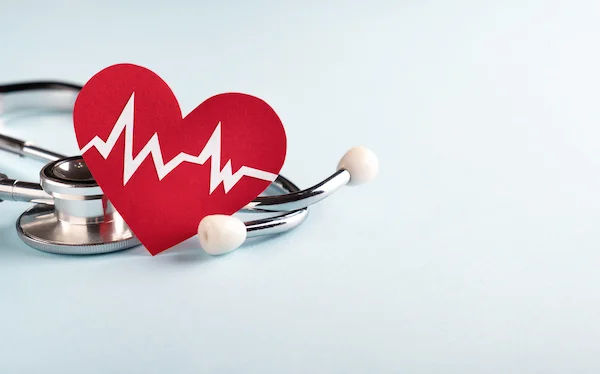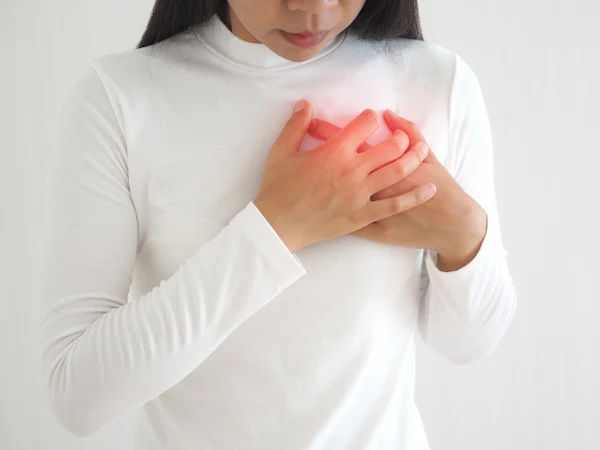Types of Arrhythmias Explained
Understand the different types of heart arrhythmias, from harmless to serious. Learn about common irregular heartbeats like atrial fibrillation, tachycardia, and bradycardia.


Introduction
Arrhythmias are conditions where your heart beats irregularly—either too fast, too slow, or in an uneven pattern. While some arrhythmias are harmless, others can be serious and require medical attention. Understanding the different types can help you recognize symptoms early and seek the right care.
What Is an Arrhythmia?
Your heart has an electrical system that controls its rhythm. When this system malfunctions, it can cause abnormal heartbeats. These irregular rhythms are called arrhythmias. They can affect how efficiently your heart pumps blood, sometimes leading to fatigue, dizziness, or even lifethreatening complications.
Common Types of Arrhythmias
Arrhythmias are broadly classified into two categories based on heart rate:
1. Tachycardia – When the heart beats too fast (over 100 beats per minute).
2. Bradycardia – When the heart beats too slow (under 60 beats per minute).
Within these categories, there are several specific types:
1. Atrial Fibrillation (AFib)
What happens? The upper chambers (atria) beat irregularly and too fast.
Symptoms: Palpitations, shortness of breath, fatigue, dizziness.
Risks: Increases the chance of stroke if untreated.
Management: Medications, blood thinners, or procedures like ablation.
2. Atrial Flutter
What happens? Similar to AFib, but the atria beat in a more organized, rapid rhythm.
Symptoms: Fast heartbeat, weakness, breathlessness.
Management: Medications, cardioversion (electric shock to restore rhythm), or ablation.
3. Supraventricular Tachycardia (SVT)
What happens? A sudden, very fast heartbeat originating above the ventricles.
Symptoms: Rapid pulse, chest discomfort, sweating.
Management: Vagal maneuvers (like coughing or holding breath), medications, or ablation.
4. Ventricular Tachycardia (VT)
What happens? The lower chambers (ventricles) beat too fast, which can be lifethreatening.
Symptoms: Fainting, chest pain, cardiac arrest in severe cases.
Management: Immediate medical attention, defibrillation, medications, or an implantable cardioverterdefibrillator (ICD).
5. Ventricular Fibrillation (VFib)
What happens? The ventricles quiver instead of pumping blood properly, leading to sudden cardiac arrest.
Symptoms: Collapse, loss of consciousness, no pulse.
Management: Emergency CPR and defibrillation.
6. Bradycardia (Slow Heartbeat)
What happens? The heart beats too slowly, reducing blood flow to the brain and body.
Symptoms: Fatigue, dizziness, fainting.
Management: A pacemaker may be needed if symptoms are severe.
7. Premature Contractions (Extra Beats)
What happens? Occasional early beats from the atria (PACs) or ventricles (PVCs).
Symptoms: Fluttering or skipped heartbeat sensation.
Management: Usually harmless, but lifestyle changes (reducing caffeine, stress) can help.
Consult Top Physician For More Health Benefits
What Causes Arrhythmias?
Several factors can trigger irregular heartbeats, including:
Heart disease (coronary artery disease, heart failure)
High blood pressure
Diabetes
Thyroid disorders
Excessive caffeine or alcohol
Stress or anxiety
Electrolyte imbalances (low potassium or magnesium)
When Should You See a Doctor?
Seek medical help if you experience:
Frequent palpitations
Fainting or nearfainting spells
Chest pain with irregular heartbeat
Shortness of breath without exertion
Tips for Managing Arrhythmias
The following tips for managing arrhythmias are:
Eat a Heart-Healthy Diet – Reduce salt, saturated fats, and processed foods. Include fruits, vegetables, and omega3rich foods.
Exercise Regularly – Moderate activity strengthens the heart, but avoids overexertion.
Limit Stimulants – Cut back on caffeine, alcohol, and nicotine.
Manage Stress – Practice yoga, meditation, or deep breathing exercises.
Monitor Your Heart Rate – Use a smartwatch or home ECG device if recommended by your doctor.
When to Seek Emergency Care?
Call emergency services if you or someone else has:
Sudden chest pain
Difficulty breathing
Loss of consciousness
No pulse
How Apollo 24|7 Can Help?
If you experience irregular heartbeats, consult a cardiologist for proper diagnosis and treatment. Apollo 24|7 offers:
Expert consultations with cardiologists
Home ECG tests for quick diagnosis
Personalized treatment plans
Book a consultation today through the Apollo 24|7 app or website to get the right care for your heart health.
Final Thoughts
Arrhythmias can vary from harmless to dangerous, so understanding your symptoms is crucial. With lifestyle changes and proper medical care, most arrhythmias can be managed effectively. Stay informed, listen to your body, and don’t hesitate to seek help when needed.
Your heart deserves the best care—take the first step today!
Consult Top Physician
Consult Top Physician For More Health Benefits

Dr. Mohammed Huzef Ul Arifeen
General Practitioner
3 Years • MBBS
Hyderabad
Apollo 24|7 Clinic - Telangana, Hyderabad

Dr. Siri Nallapu
General Practitioner
5 Years • MBBS
Hyderabad
Apollo 24|7 Clinic, Hyderabad

Dr. M L Ezhilarasan
General Practitioner
6 Years • MBBS
Visakhapatnam
Apollo 24|7 Clinic - Andhra Pradesh, Visakhapatnam

Dr. Vasanthasree Nair
General Practitioner
15 Years • MBBS
Angamaly
Apollo 24|7 Clinic - Kerala, Angamaly
(425+ Patients)

Dr. Syed Yaseen Ahmed
General Practitioner
7 Years • MBBS
Hyderabad
Apollo 24|7 Clinic, Hyderabad
Consult Top Physician

Dr. Mohammed Huzef Ul Arifeen
General Practitioner
3 Years • MBBS
Hyderabad
Apollo 24|7 Clinic - Telangana, Hyderabad

Dr. Siri Nallapu
General Practitioner
5 Years • MBBS
Hyderabad
Apollo 24|7 Clinic, Hyderabad

Dr. M L Ezhilarasan
General Practitioner
6 Years • MBBS
Visakhapatnam
Apollo 24|7 Clinic - Andhra Pradesh, Visakhapatnam

Dr. Vasanthasree Nair
General Practitioner
15 Years • MBBS
Angamaly
Apollo 24|7 Clinic - Kerala, Angamaly
(425+ Patients)

Dr. Syed Yaseen Ahmed
General Practitioner
7 Years • MBBS
Hyderabad
Apollo 24|7 Clinic, Hyderabad


